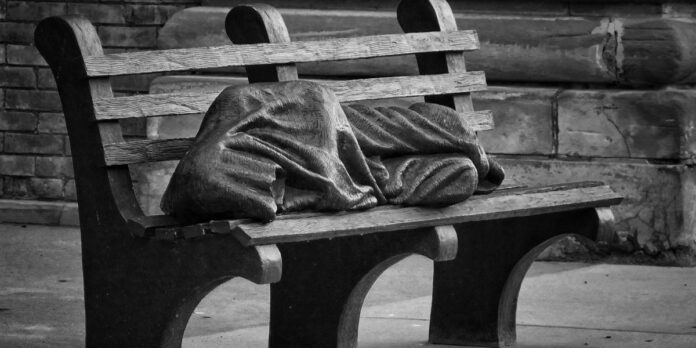South Africa is a country that faces many challenges, one of which is poverty. This problem manifests in various ways, including homelessness. Fortunately, the government and various organizations have implemented poverty alleviation efforts that address this issue. In this article, we’ll explore how South Africa’s poverty alleviation efforts are tackling homelessness and what progress has been made.
Homelessness in South Africa
Homelessness is a complex problem in South Africa, and its causes are numerous. One significant factor is poverty, which results from unemployment, low wages, and a lack of access to basic services. Other contributing factors include mental illness, substance abuse, and domestic violence.
According to a 2014 report by the Human Sciences Research Council, there were approximately 200,000 homeless people in South Africa. However, this figure is likely to be higher due to the impact of COVID-19 and the country’s economic downturn.
The good news is, SASSA pensioners can also get old age homes and good care as well.
South Africa’s Poverty Alleviation Efforts
The South African government and various non-governmental organizations have implemented several poverty alleviation efforts to tackle homelessness. These initiatives aim to provide the basic needs of food, shelter, and clothing to vulnerable individuals and families. Some of the poverty alleviation efforts include:
Social Grants
The South African government provides social grants to vulnerable groups, including the elderly, disabled, and children. These grants aim to alleviate poverty by providing a basic income for those who can’t support themselves. Currently, there are more than 18 million beneficiaries of social grants in South Africa.
Housing Programs
The government has implemented several housing programs to provide affordable housing to low-income families. One such program is the Reconstruction and Development Programme (RDP), which aims to provide houses to those who can’t afford them. Other housing programs include the Social Housing Programme, which provides rental housing to low-income households.
Job Creation Programs
Unemployment is a significant driver of poverty and homelessness in South Africa. To tackle this issue, the government has implemented job creation programs that aim to create employment opportunities for the unemployed. One such program is the Expanded Public Works Programme (EPWP), which provides temporary employment to people living in poverty.
Non-Governmental Organizations
Various non-governmental organizations (NGOs) in South Africa provide services and support to vulnerable individuals and families. These organizations offer a range of services, including food and clothing donations, shelter, counseling, and healthcare.
Progress in Poverty Alleviation Efforts
South Africa’s poverty alleviation efforts have made progress in addressing homelessness. For instance, the government’s social grants have helped to reduce poverty rates in the country. According to Statistics South Africa, the poverty rate decreased from 55.1% in 2006 to 40.1% in 2019, thanks in part to the social grants program.
Similarly, the government’s housing programs have provided affordable housing to many low-income families. Since the inception of the RDP in 1994, the government has built more than 4 million houses for low-income families.
Non-governmental organizations have also played a crucial role in addressing homelessness in South Africa. For instance, the Haven Night Shelter Welfare Organization provides temporary shelter and support services to homeless individuals in Cape Town. Other NGOs, such as Gift of the Givers, provide food, clothing, and healthcare services to vulnerable communities.
Challenges in Poverty Alleviation Efforts
Despite the progress made, South Africa’s poverty alleviation efforts face several challenges. One significant obstacle is the high level of inequality in the country. According to the World Bank, South Africa is one of the most unequal countries globally, with a Gini coefficient of 0.63 in 2021.
Another challenge is the impact of the COVID-19 pandemic on the country’s economy. The pandemic has led to a rise in unemployment, and the economic downturn has made it difficult for poverty alleviation efforts to have the intended impact. For instance, the government’s job creation programs have struggled to create employment opportunities in the current economic climate.
Moreover, the demand for social grants has increased due to the economic impact of COVID-19, placing additional pressure on the government’s resources.
Conclusion
Homelessness is a significant challenge in South Africa, and poverty is one of the main drivers of this problem. Fortunately, the government and various organizations have implemented poverty alleviation efforts that address this issue. These initiatives aim to provide the basic needs of food, shelter, and clothing to vulnerable individuals and families.
South Africa’s poverty alleviation efforts have made progress in addressing homelessness, with initiatives such as social grants, housing programs, job creation programs, and non-governmental organizations playing a crucial role. Despite the progress made, poverty alleviation efforts still face several challenges, including high inequality levels and the impact of the COVID-19 pandemic on the economy.
Ultimately, addressing homelessness requires a multifaceted approach that tackles the root causes of poverty, such as unemployment, low wages, and lack of access to basic services. It is crucial to continue implementing poverty alleviation efforts that address these issues and create a more inclusive and equitable society in South Africa.











